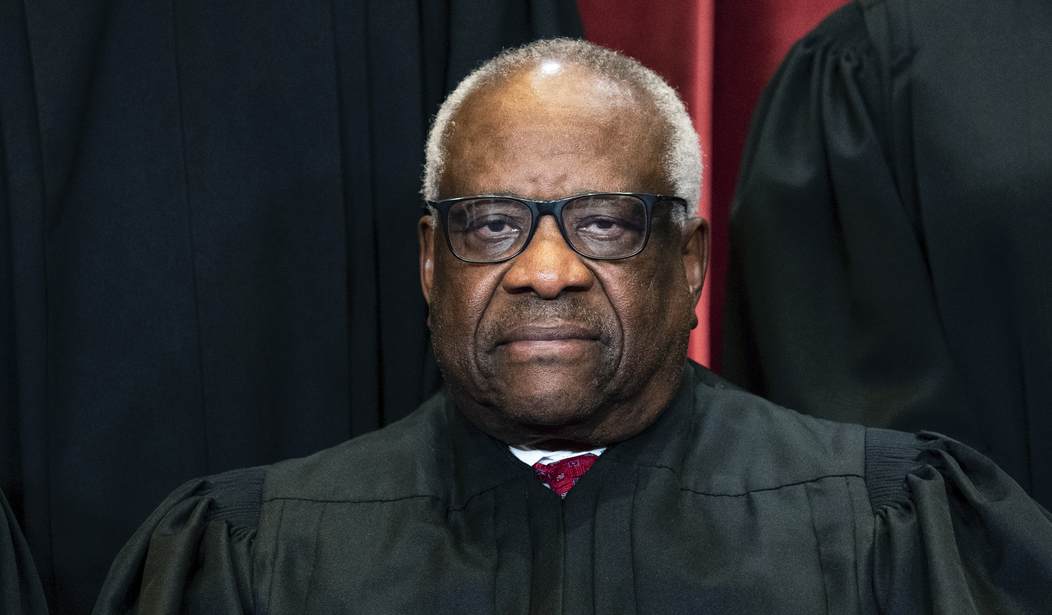On Monday, the United States Supreme Court heard oral arguments in two cases surrounding affirmative action admissions at Harvard University and the University of North Carolina at Chapel Hill.
As Townhall reported, the organization Students for Fair Admissions accused the schools of discriminating against Asian applicants.
In the case Student for Fair Admissions v. UNC, Justice Clarence Thomas asked defenders of the university's affirmative action admissions policies how "diversity" benefits higher education.
Specifically, Thomas asked North Carolina Solicitor General Ryan Park, who is defending the race-based affirmative action program, for a “clear idea of what the education benefits of diversity at the University of North Carolina would be.”
“I’ve heard the word ‘diversity’ quite a few times, and I don’t have a clue what it means. It seems to mean, ‘everything for everyone,’” Thomas said. “I’d like you to give us a specific definition of diversity in the context of the University of North Carolina.”
“We define diversity the way this court has and this court’s precedents, which means a broadly diverse set of criteria that expands to all different backgrounds and perspectives and not solely limited to race,” Park said before adding that there are “many different diversity factors that are considered as a greater factor in our admissions process than race.”
“I’ve heard the word diversity quite a few times, and I don’t have a clue what it means.”
— The Recount (@therecount) October 31, 2022
— Justice Clarence Thomas asks for a “specific definition” of diversity and its benefits during oral arguments for Students for Fair Admissions v. UNC, a case challenging affirmative action pic.twitter.com/1EUfyCR3n4
Recommended
"I didn't go to racially diverse schools, but there were educational benefits, and I'd like you to tell me expressly when a parent sends a kid to college that they don't necessarily send them there to have fun or feel good or anything like that," Thomas pressed. "They send them there to learn physics or chemistry or whatever their study. So tell me what the educational benefits are.”
In response, Park claimed there is a “truth-seeking function of learning in a diverse environment” and argued that students in racially diverse schools perform better and “[reduces] bias between people of different backgrounds.”
"I don't put much stock in that because I've heard similar arguments in favor of segregation, too,” Thomas responded.
“I don’t put much stock in that because I’ve heard similar arguments in favor of segregation too.”
— The Recount (@therecount) October 31, 2022
During oral arguments for Students for Fair Admissions v. UNC — which could dismantle affirmative action — Justice Thomas challenges counsel on “educational benefits” of diversity. pic.twitter.com/ktXPJm5HaF
Thomas has long been a critic of affirmative action. CNN pointed out that Thomas wrote in 2003 that “The Constitution abhors classifications based on race, not only because those classifications can harm favored races or are based on illegitimate motives, but also because every time the government places citizens on racial registers and makes race relevant to the provision of burdens or benefits, it demeans us all.”
Townhall reported this month that most Americans polled said they support leaving race out of college admissions. Justice Ketanji Brown Jackson said during the UNC case that the colleges are looking at the “whole person,” insinuating that race is just one factor.
A lawyer for Students for Fair Admissions, Patrick Strawbridge, noted that race is “one factor” when deciding on college admissions. But, that one detail can "[make] distinctions upon who it will admit at least in part.”
“Some races get a benefit,” he said during oral arguments. “Some races do not get a benefit.”
























Join the conversation as a VIP Member